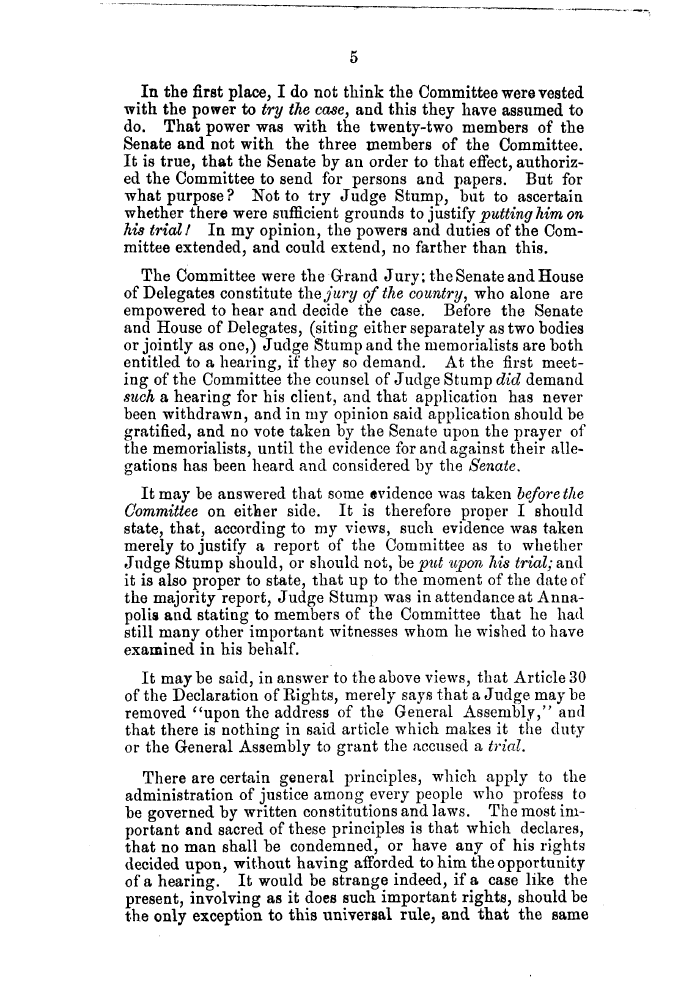|
In the first place, I do not think the Committee were vested with the power to try the case, and this they have assumed to do. That power was with the twenty-two members of the Senate and not with the three members of the Committee. It is true, that the Senate by an order to that effect, authorized the Committee to send for persons and papers. But for what purpose ? Not to try Judge Stump, but to ascertain whether there were sufficient grounds to justify putting him on his tried! In my opinion, the powers and duties of the Committee extended, and could extend, no farther than this.
The Committee were the Grand Jury; the Senate and House of Delegates constitute the jury of the country, who alone are empowered to hear and decide the case. Before the Senate and House of Delegates, (siting either separately as two bodies or jointly as one,) Judge Stump and the memorialists are both entitled to a hearing, if they so demand. At the first meeting of the Committee the counsel of Judge Stump did demand such a hearing for his client, and that application has never been withdrawn, and in my opinion said application should be gratified, and no vote taken by the Senate upon the prayer of the memorialists, until the evidence for and against their allegations has been heard and considered by the Senate.
It may be answered that some evidence was taken before the Committee on either side. It is therefore proper I should state, that, according to my views, such evidence was taken merely to justify a report of the Committee as to whether Judge Stump should, or should not, \)e put upon his trial; and it is also proper to state, that up to the moment of the date of the majority report, Judge Stump was in attendance at Annapolis and stating to members of the Committee that he had still many other important witnesses whom he wished to have examined in his behalf.
It maybe said, in answer to the above views, that Article 30 of the Declaration of Eights, merely says that a Judge may be removed "upon the address of the General Assembly," and that there is nothing in said article which makes it the duty or the General Assembly to grant the accused a trial.
There are certain general principles, which apply to the administration of justice among every people who profess to be governed by written constitutions and laws. The most important and sacred of these principles is that which declares, that no man shall be condemned, or have any of his rights decided upon, without having aiforded to him the opportunity of a hearing. It would be strange indeed, if a case like the present, involving as it does such important rights, should be the only exception to this universal rule, and that the same
|

